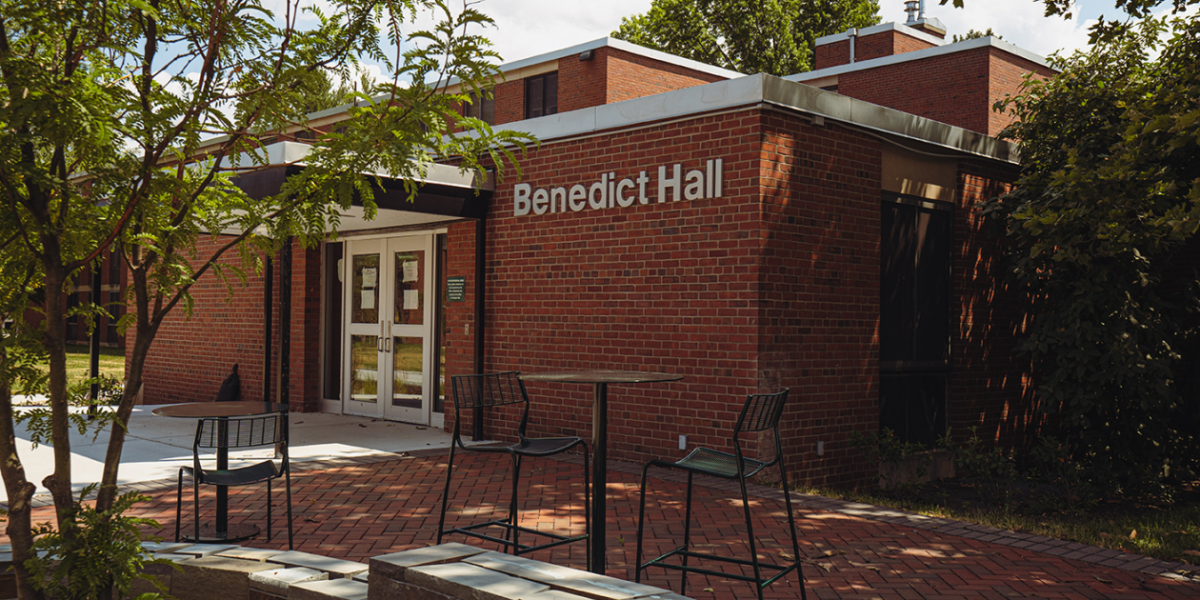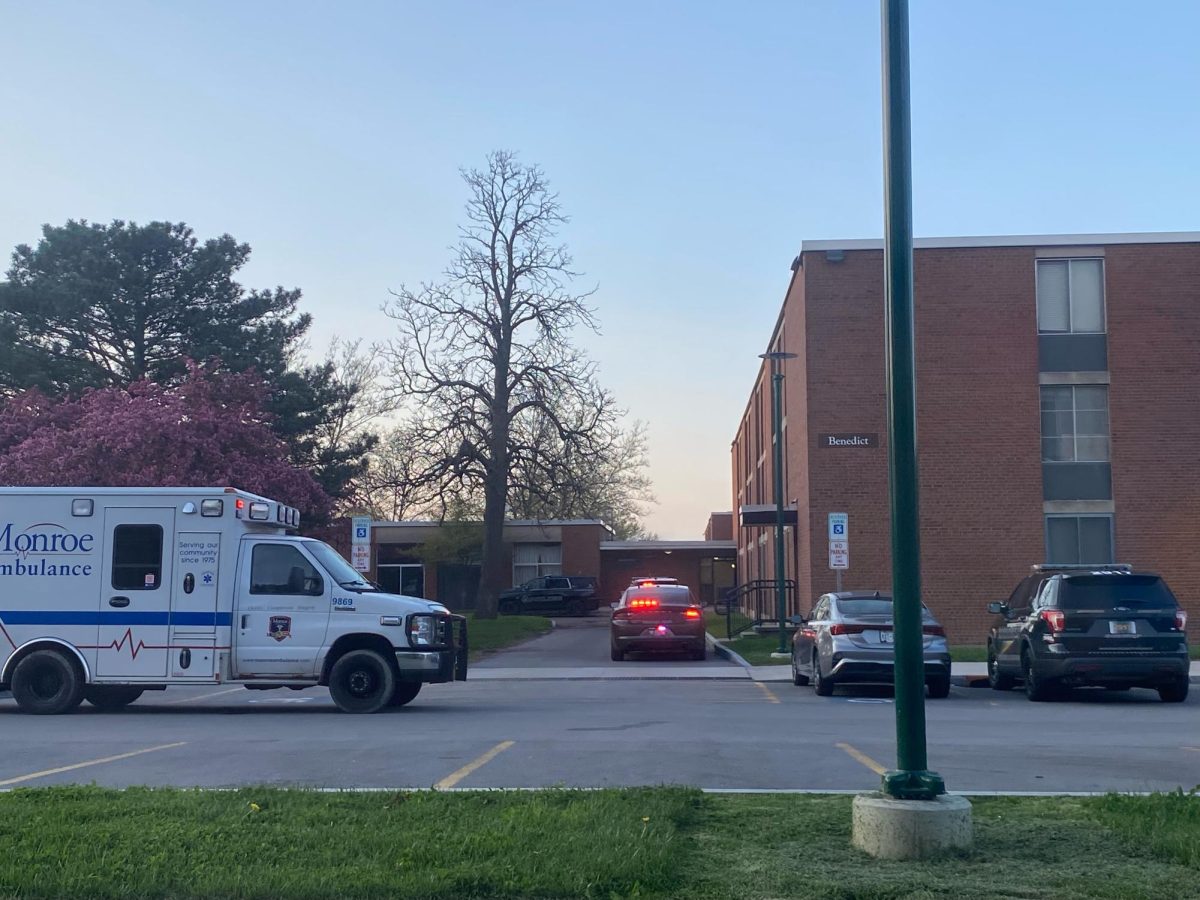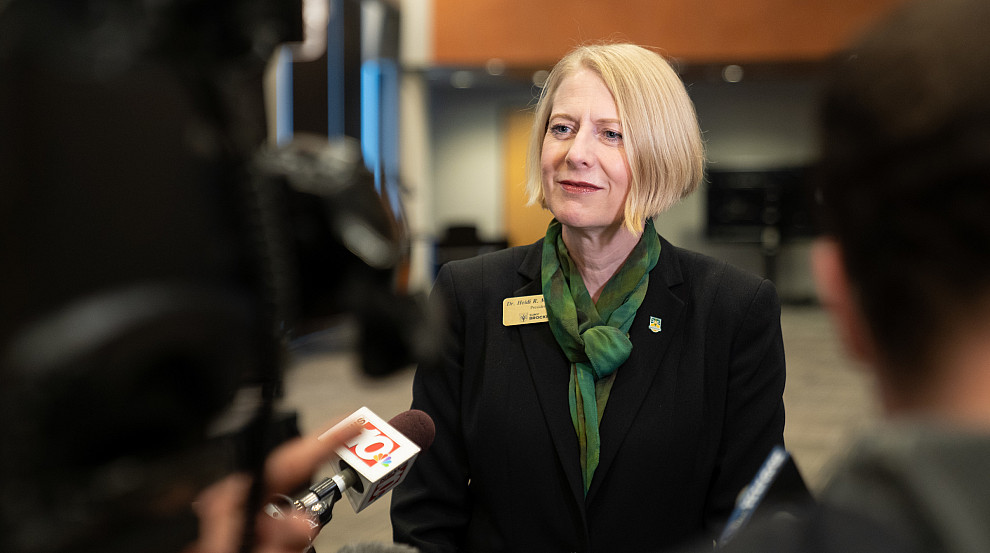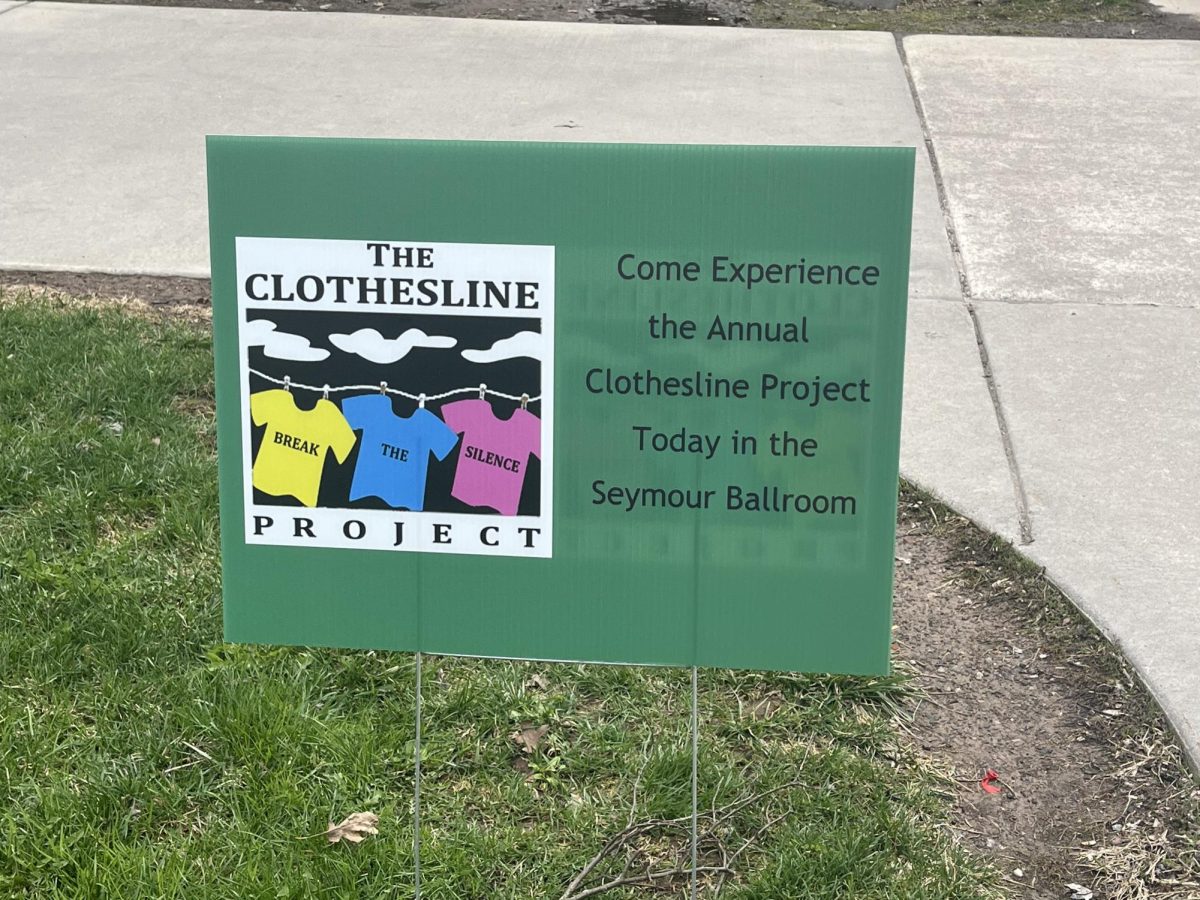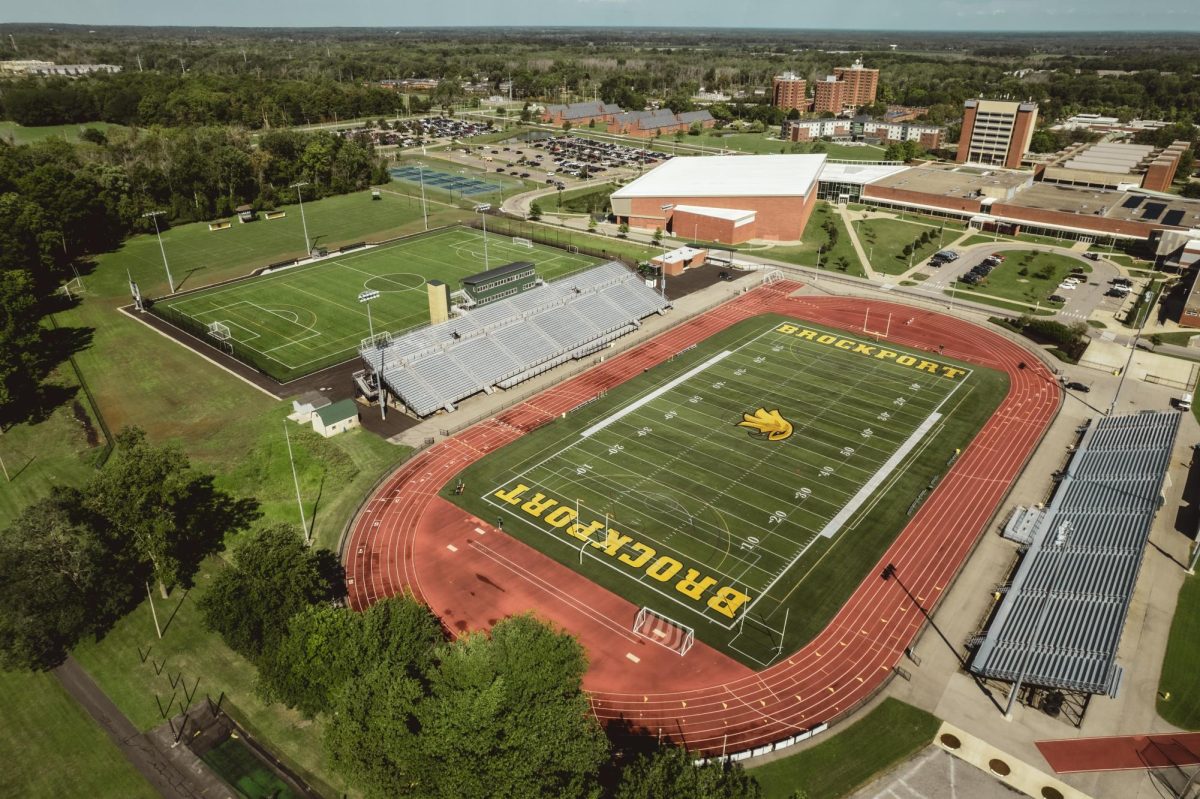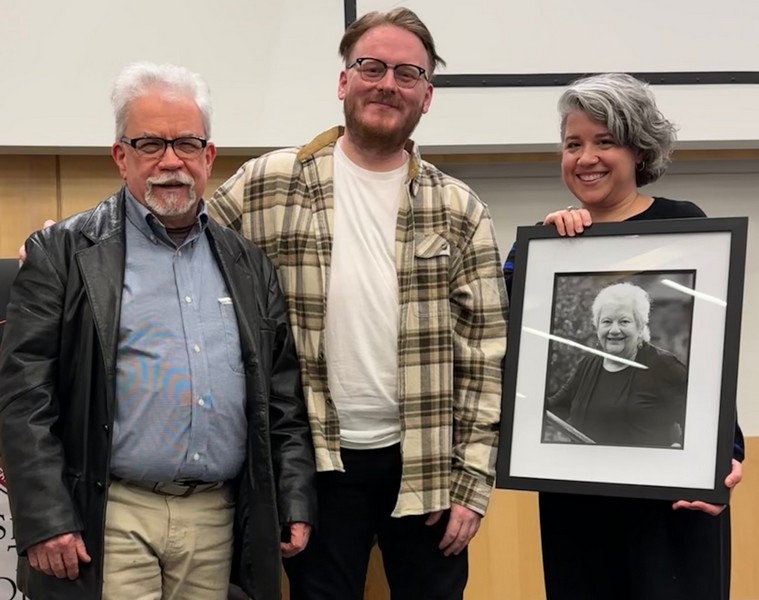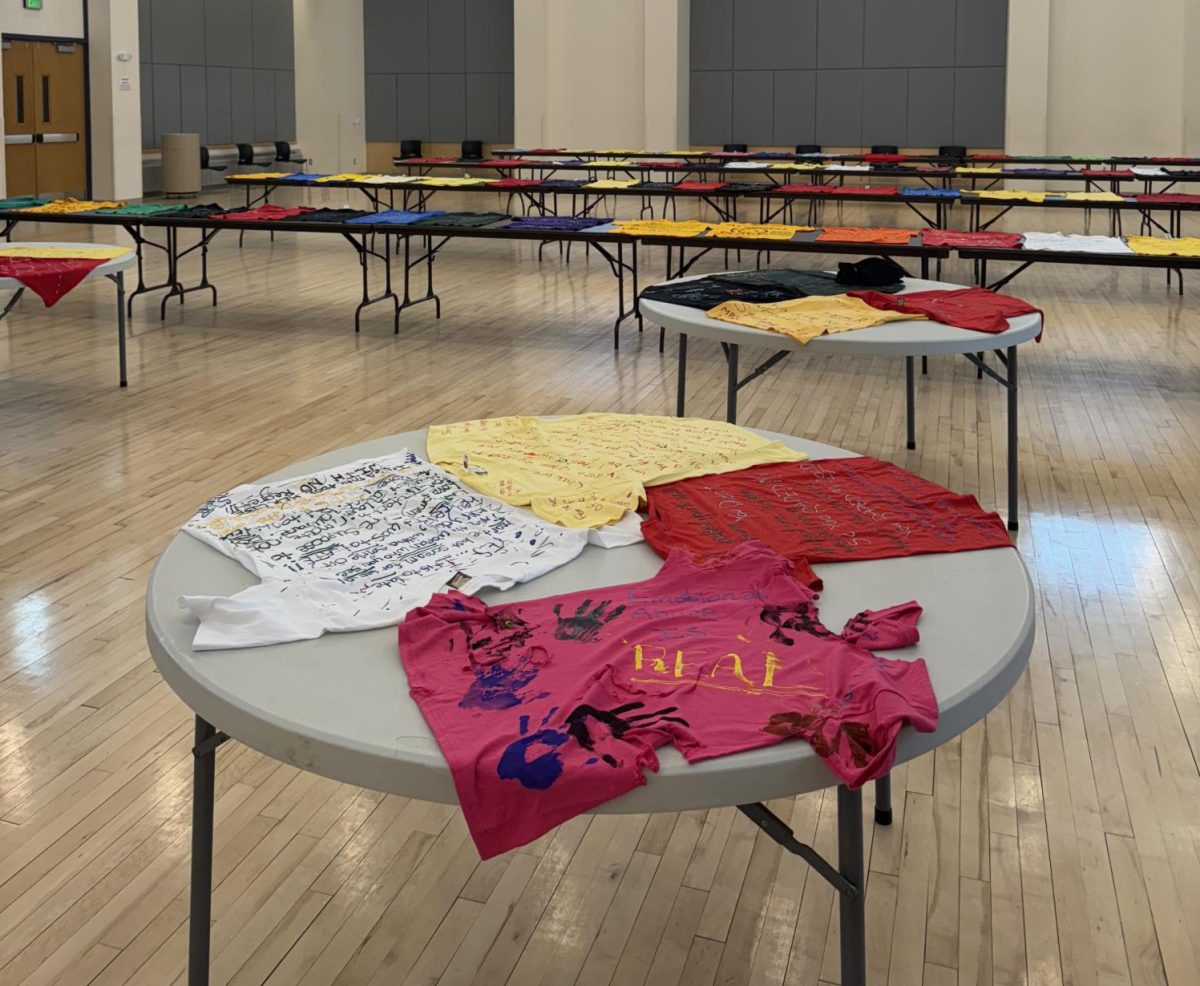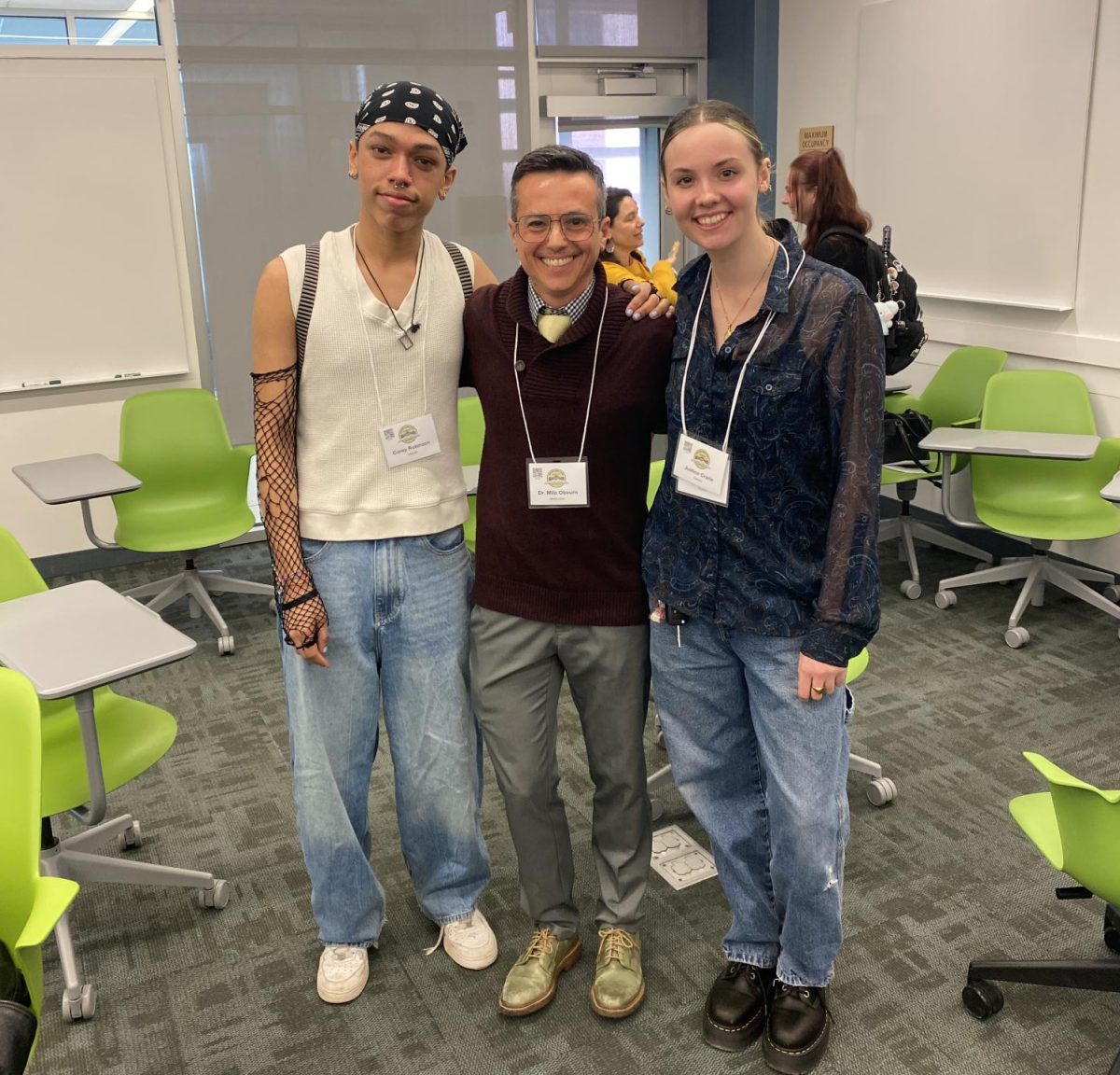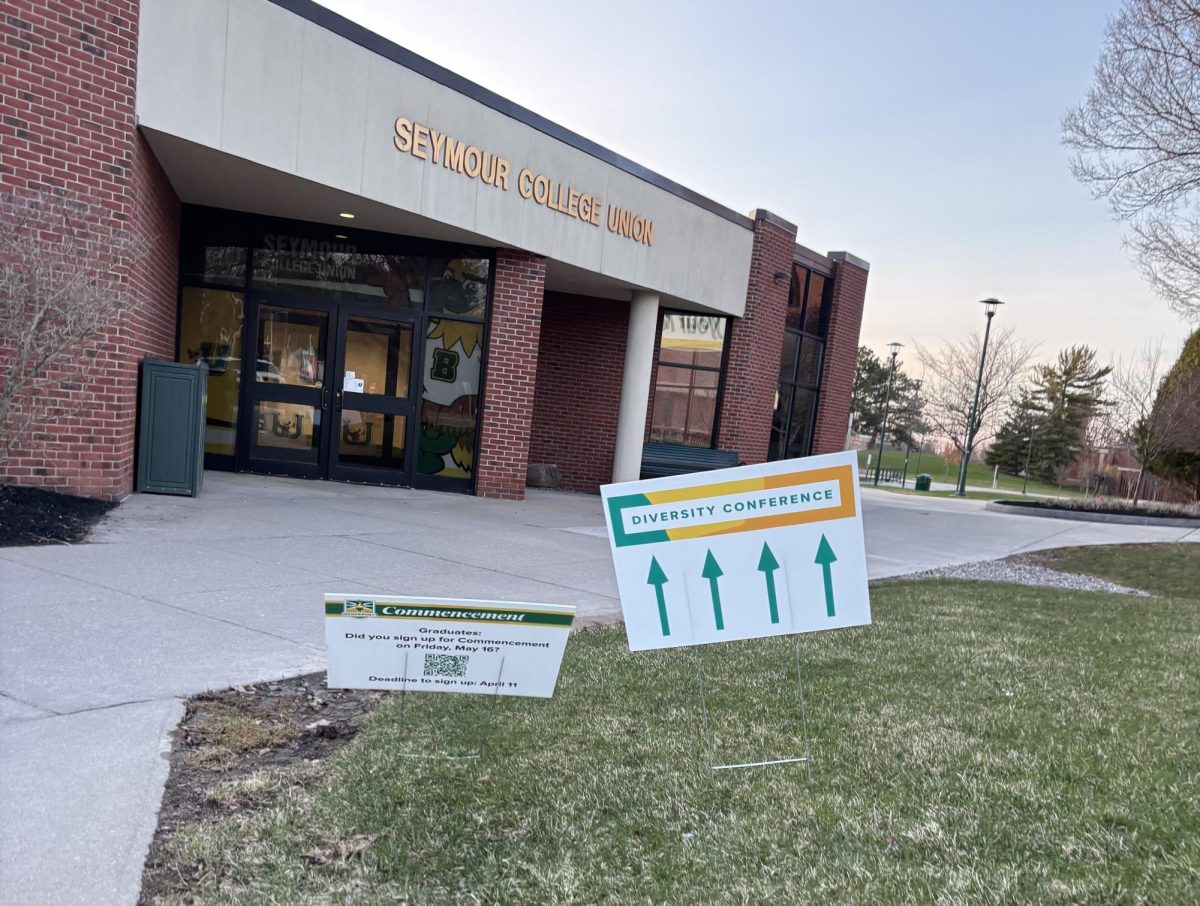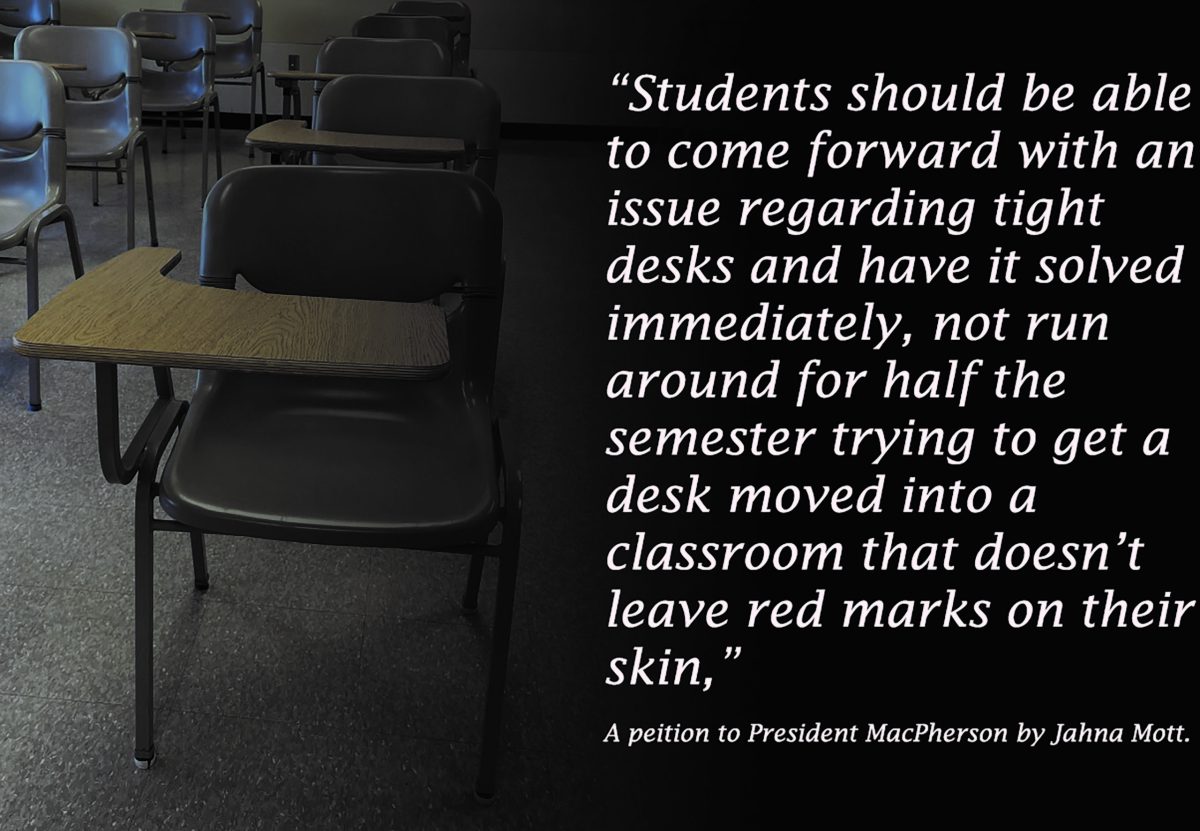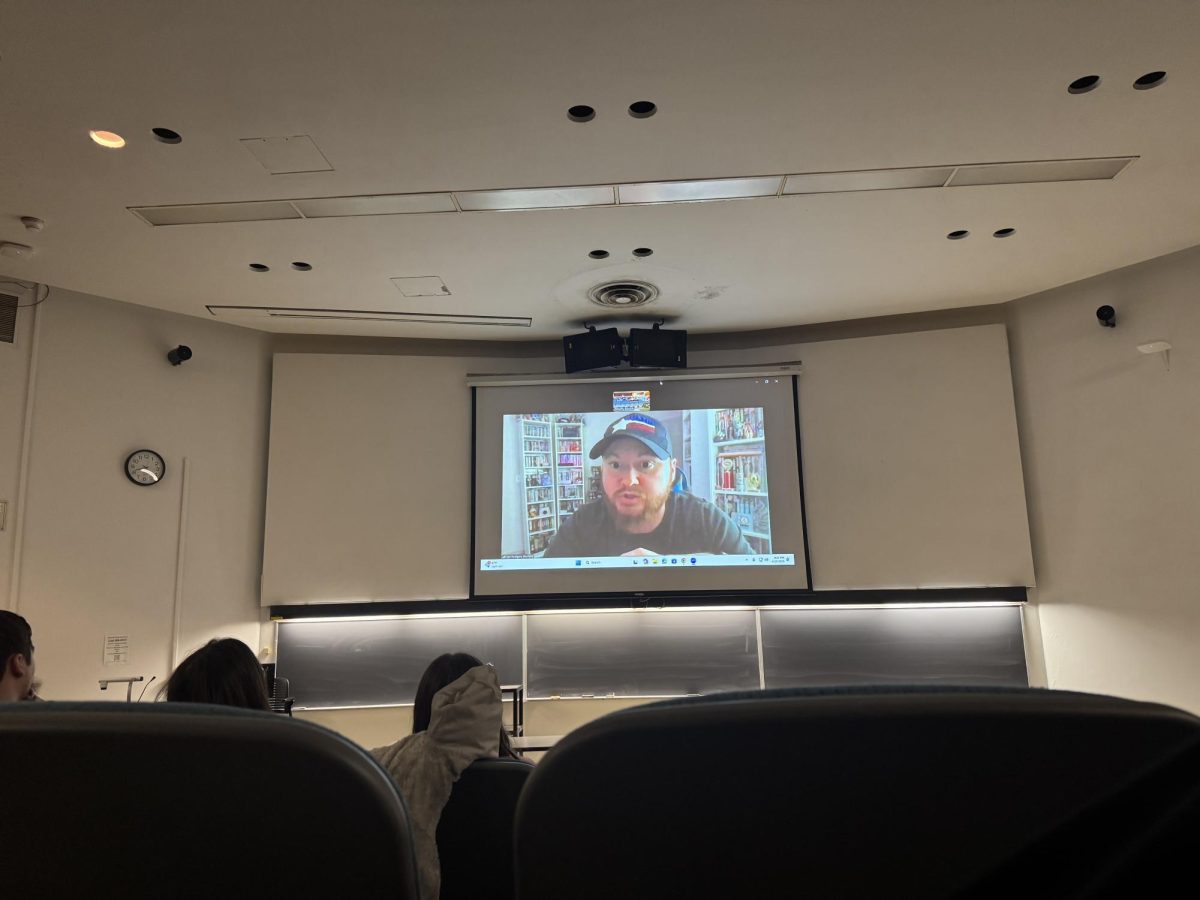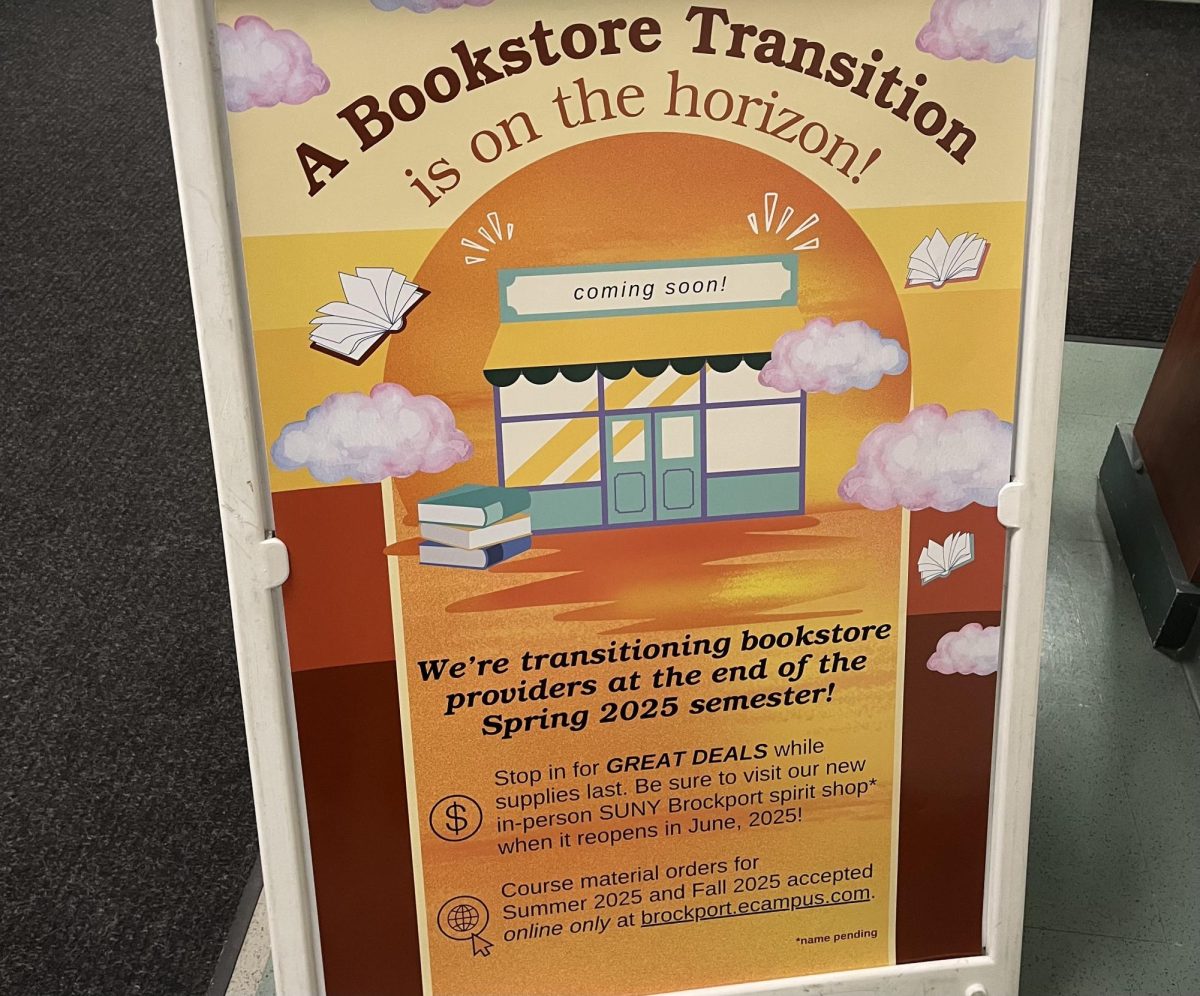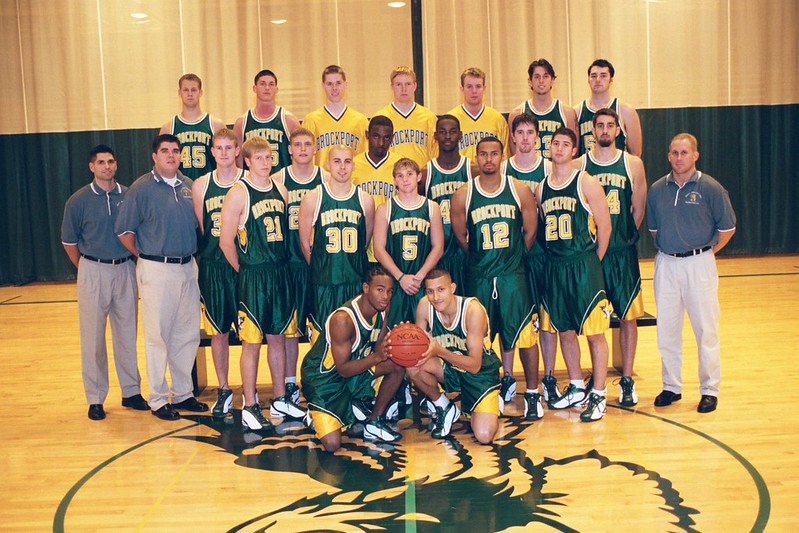At a state school, students of all sizes and abilities should feel welcome on campus and in their classrooms.
That’s what students like Johanna Mott say should be a requirement in classrooms that they say lack inclusive seating for all body types.
In early March, Mott posted a petition titled “Accessible Classrooms at SUNY Brockport” with a mission statement saying that plus-sized students are simply not receiving the right accommodations for what they are paying for.

The SUNY Brockport social work program has been discussing this problem for a while. Mott is one of these students and she says these issues are seen all too often.
“Every room on campus is different. Every classroom is different. So there are some classrooms that are like super accessible, super great. And then there are other classrooms that have like those pre-fixed desks where you just kind of have to slide into the seat,” Mott said.
Mott emphasized the physical pain many students have claimed to have gone through sitting in these desks for long periods of time. And many of her friends who have struggled with this do not want to go through accessibility or a doctor just for a new desk chair, referring to it as a “demeaning process”.
“They have red marks on their stomach from trying to fit in these desks and they can’t focus because all they’re focused on is the pain that they’re enduring while sitting in these desks. When you try to contact the disability and accessibility services, unless you have like a medically diagnosed condition, they won’t help you and won’t make those accommodations [without a medical note],” Mott said. “So plus size needed a note from their doctor saying that they were fat enough to need those accessibility accommodations and I just think that that’s ridiculous. Like it’s so demeaning. To have to go to your doctor and ask them for confirmation of your size for confirmation that you’re uncomfortable in your classroom in order to get those accessibility issues fixed.”
Dr. Jennifer Wood is a professor for the social work department at SUNY Brockport and says this issue has actually been talked about for years. Wood said she brought this issue up to the school back in 2019 to the previous Chief Diversity Officer Dr. Cephas Archie. A plan was allegedly laid out, but COVID brought it to a hault. Wood says now that classes are completely back to in person format, these issues are being reintroduced by both students and faculty.
Wood said students have described how painful sitting in these desks can be for them; from cutting off their circulation to leaving physical bruises. Wood said students who pay tuition shouldn’t have to endure more physical pain or feel singled out just to receive an education.
“As far as physical pain goes, when you’re sitting in a seat, that the space that the seat gives you is not as wide as your own body, you have to slide in and the dimesnsions and flat part of the desk will basically jam into your stomach. And there are students who have shown me they have welts on their stomachs and abdomens from the desks, some of the seats if they have arms. On their chairs, students with wider hips and larger butts can’t fit and it physically hurts to sit in those seats, Wood said. “I mean, there is a lot of literature out there on how discomfort in physical discomfort in the classroom impedes learning and as far as the emotional piece, it’s embarrassing to not fit to your seats. It feels bad when you walk into a classroom and the space you’re in excludes your body. It’s embarrassing. And then if there is an accessible seat, it’s that one little table up in front of the room with a chair that everybody knows why that desk is there.”

Wood said her and her students have been laser focused on Hartwell Hall for its older classrooms. Hartwell Hall was completed in 1941 and began as the only classroom building on campus. Wood said these desks have not been replaced since the 90s as far as she can remember and to accommodate all students, its time for a change.
“I think that they need to do a really thorough analysis of what their facilities look like. And I think they need to have a committee to do that. And that committee should be made up of all different stakeholders with different bodies and different levels of ability,” Wood said. “People with larger bodies, visual impairments or with hearing impairments. If there’s one single room on this campus that is inaccessible to anyone, then we’re not doing our job.”
Student Veronica Young is a part of the social work program and is a student of Dr Jennifer Wood. While attending classes, she has found herself personally impacted by the size of desks on campus saying her medical size should not impact her learning.
“It makes me sick. Medically, I’m already declared as medically obese because that’s my BMI. And then going to an institution and having them put in your system ‘oh this person is medically obese’. What does that have to do with me as a student? I am here to learn,” Young said.
Young is also a transfer from Monroe Community College, where her experience was a lot different. At the newly renovated downtown campus, Young said with more accessible seating being available for students on that campus, there is no excuse why SUNY can’t update their seating too.

“I was specifically a part of the downtown campus because that’s where they did human services. Even there they kind of acknowledged their seating situation wasn’t ideal. So when they moved to the campus they fixed up in the Kodak building downtown, we had better chairs, not in every single classroom. But I think it’s a SUNY thing and an institutional thing across the board”
Fellow social work student Ariana Fuller has also been impacted by the size of desks on campus and says its just embarrassing to have to report her size as a disability in itself.
“I feel like it would be really embarrassing for me to ask if I could get a desk right up here, just because my thighs are like pinching, you know,” Fuller said. “I’m not the only plus-size woman in my classes or men for that matter. We need to have better seating overall, like this is not high school we have adult bodies.”
Fuller adds that with the ongoing construction around campus, she thinks there is no excuse for why desks have not been replaced in older classrooms and that the newly renovated parts are just for show to get students to attend.
“I feel that [renovations] are extremely disrespectful and annoying that’s all for show, right? Like, this is all ‘oh, come to our campus come to our college,” Fuller said. “It’s beautiful is newly renovated, we have money’. But when you come into the classrooms, particularly in a building like [Hartwell Hall], the oldest one on campus that has burned down once and the chairs aren’t even inclusive, it’s like, okay, like you got me in the door, but also, I don’t even like want to be here now. I’d much rather be in my bed during school online because I’m not comfortable in these classrooms.”

Although there is mention from students regarding the Accessibility Office, there isn’t much information about it that student’s like Fuller or Young have found easy to access. Assistant director of student accessibility services Nikki Hall says she understands why students are so angry over the desk sizes and that she has had issues with the desks in Hartwell herself because of her own disability.
“I’m only three foot 10, the chairs in Hartwell cut off my circulation because the desk has to go down, which pushes me all the way back,” Hall said. “And then the edge of the chair at Hartwell pushes my leg up and it makes my feet go numb, I can’t bend my knees because the desk pushes me back. So for as much as it doesn’t fit them. It doesn’t fit me either.”
Although Hall agrees that this is a problem on campus, she emphasizes that without professors “submitting a ticket” to the accessibility office, chairs cannot be replaced.
“So the professors can order the furniture and you if professors order the furniture through facilities, and if they cannot fill the order, what they do is facilities and then take that data and go to the financial people and say we need money. This is the demand,” Hall said. “But if the professors aren’t ordering the furniture, to give the data to prove that there’s a demand, no new inventory is going to be purchased.
Hall says professors just need to let the accessibility office know how many new chairs or desks for multiple variable body sizes they need in a classroom. And Hall recommends over estimating to save students the embarrassment of having to chose the only different desk in the room. But with the website being difficult to navigate, many professors don’t even know this is an option and therefore no new desks are coming into the classrooms.
Hall is on a new entity on campus called the Instructional Technology and Classroom renovations where she can advocate for students with disabilities. But she says inclusive desks isn’t just about disabilities, its about equality and comfort.
“I’m an ally to anyone who is variable in any way. You don’t have to have a disability. It’s just I think we’re all airlines,” Hall said. “I don’t think there’s anyone who’s saying, ‘Oh, no, we should have terrible furniture and make everybody feel like they have a wedgie in their feet’. Like it’s terrible. It’s terrible. Those Hartwell chairs and desks have been there since I graduated from here in 2006. I don’t know how long they’ve been there, but we’ve inherited those chairs from a long time ago. And I think the world has changed [since then] and I think the world is a much better place where many more students are more inclusive.”
Hall feels like this topic is one that has been brushed under the rug for too long and knows students are unaware of her services even existing. And when it comes to having the money to replace furniture, if there is a request for new furniture, it has to be delivered.

“I think it’s something where if we take it chunk by chunk, what is the how can we make the most impact with the resources that we have now, and then also make a long term plan for continuing that impact and building it up over time,” Hall said. “That committee didn’t exist last semester, it’s here now. So that’s, that’s one thing, what is the impact? And also, part of that is going to be if people just fill out the ticket and make it known, then that’s the impact because the question is like, how many people will this serve? The college is always kind of like, ‘if we’re going to spend money on something and really invest in something, how many people and who are the people that this will serve?’ Its going to serve so many more than 553 students to have inclusive furniture.”
The Student Accessibility Services website is where you can find as a student or professor resources that will help make classrooms more inclusive.
You can find this by clicking the “Services” tab under navigation, then at the bottom of that page click the “Login to Accommodate”, click whether you are a student or faculty member. Then on that page you click the three bars on the top left and click “Accommodation” the “record”.
Although many students like Fuller and Young have faced stigmatization in the classroom due to the size of desks for most of their time at Brockport, Hall says she hopes that over time, the creation of this new committee will create a ripple effect and begin the long process of making every classroom on campus inclusive to all students.

